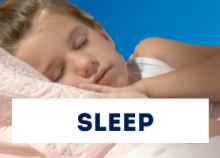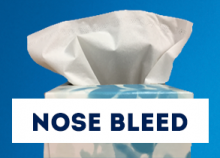
Does anyone in your family catch colds or suffer from dry throat and flaky skin during the winter months?
These are all possible signs that the humidity levels in your home may be too low. To put it into perspective, in the winter time, humidity levels can drop to as low as 10% – drier than the Sahara desert! Vicks humidifiers are here for you when your family needs them most. By restoring essential moisture to any room, Vicks humidifiers can help you get ready before cold and flu season starts, and they help provide soothing relief once those coughs, sneezes, and congestion strike.
Generally, humidifiers provide the greatest benefit in the cold winter months, but in dryer climates they can be used year-round too.
Using a humidifier regularly helps provide many benefits. Click below to learn more:

Research shows that maintaining an indoor humidity level between 40-60% can reduce the survival of flu viruses on surfaces and in the air.*

Humidifiers can help alleviate and relieve itchiness due to dry skin.

Using a humidifier at night can help relieve some cold and flu symptoms so that your child can have a more comfortable sleep and rest.

Keeping nasal passages hydrated can help reduce the occurance of nose bleeds.

Humidifiers can help break up congestion and relieve a stuffy nose.

Dry air can sometimes cause a sore throat. Run a humidifier to elevate the humidity levels and help alleviate a sore throat naturally.

Keeping nasal passages hydrated can help reduce the occurance of nose bleeds.

Humidifiers can help break up congestion and relieve a stuffy nose.

Dry air can sometimes cause a sore throat. Run a humidifier to elevate the humidity levels and help alleviate a sore throat naturally.

Research shows that maintaining an indoor humidity level between 40-60% can reduce the survival of flu viruses on surfaces and in the air.*

Humidifiers can help alleviate and relieve itchiness due to dry skin.

Using a humidifier at night can help relieve some cold and flu symptoms so that your child can have a more comfortable sleep and rest.
Be sure that you don’t over humidify. Moisture in the air is good, but too much isn’t. If you start to see condensation on the windows or the air feels damp, then it’s time to turn your humidifying efforts down a notch. Try using a Vicks Humidity Monitor to help monitor your indoor humidity levels. A comfortable and optimal humidity level is between 40-60%.


